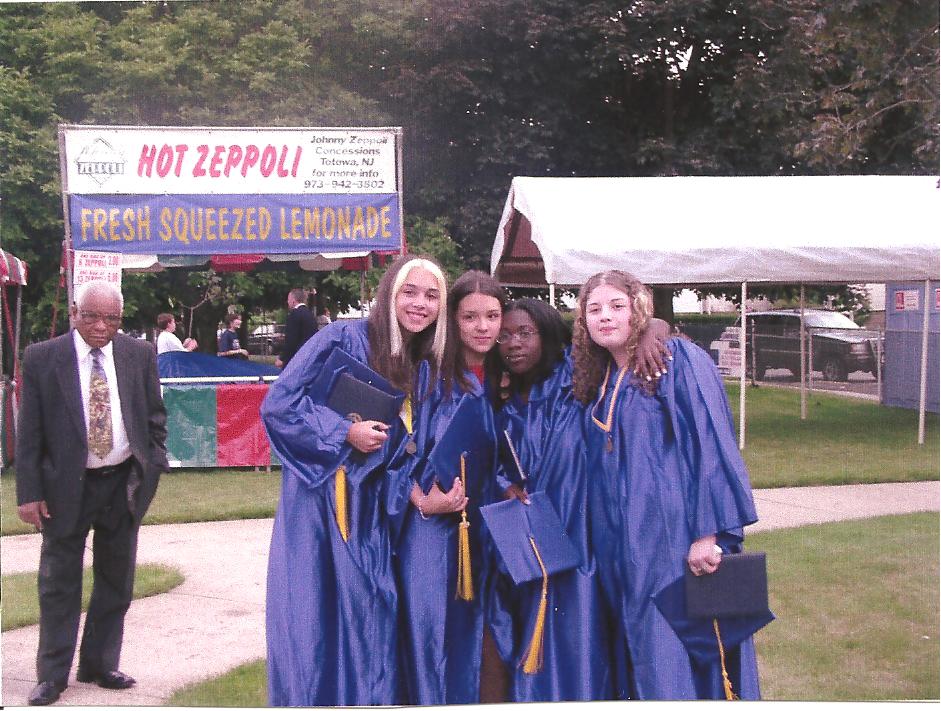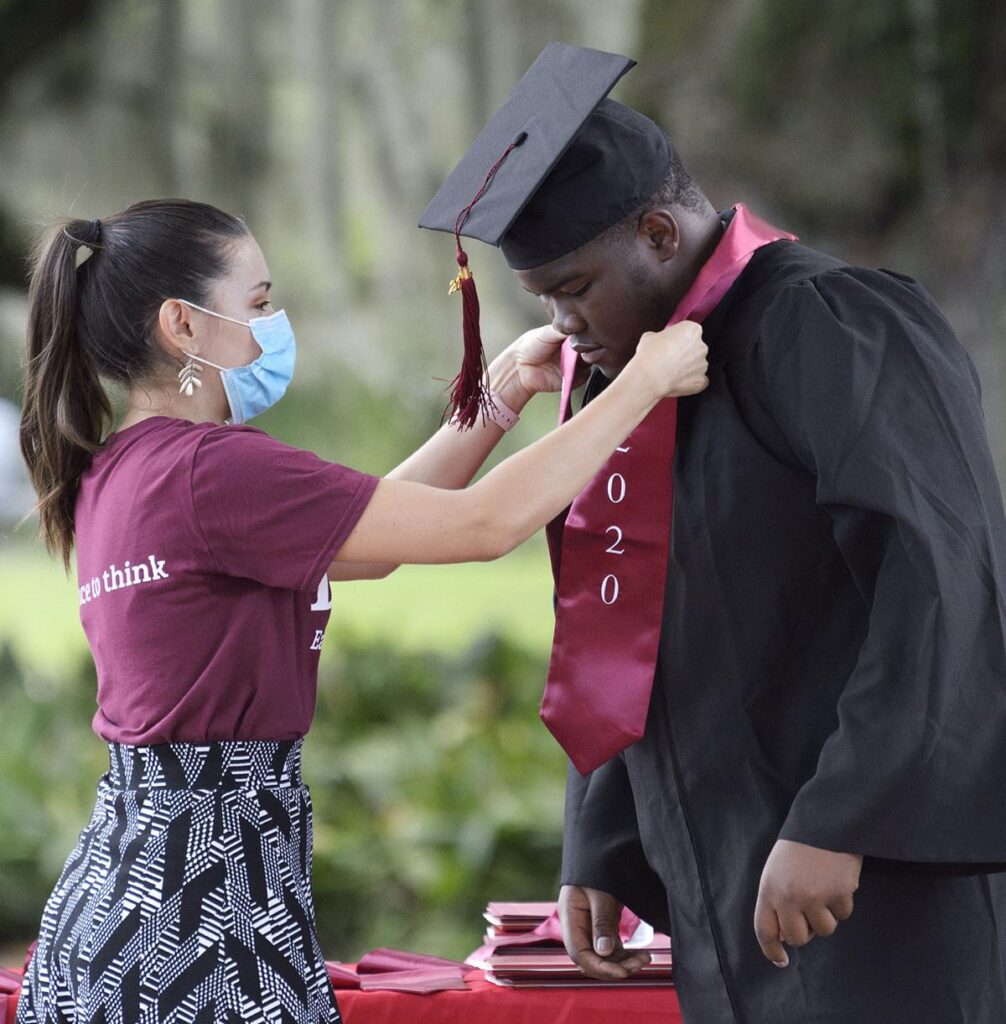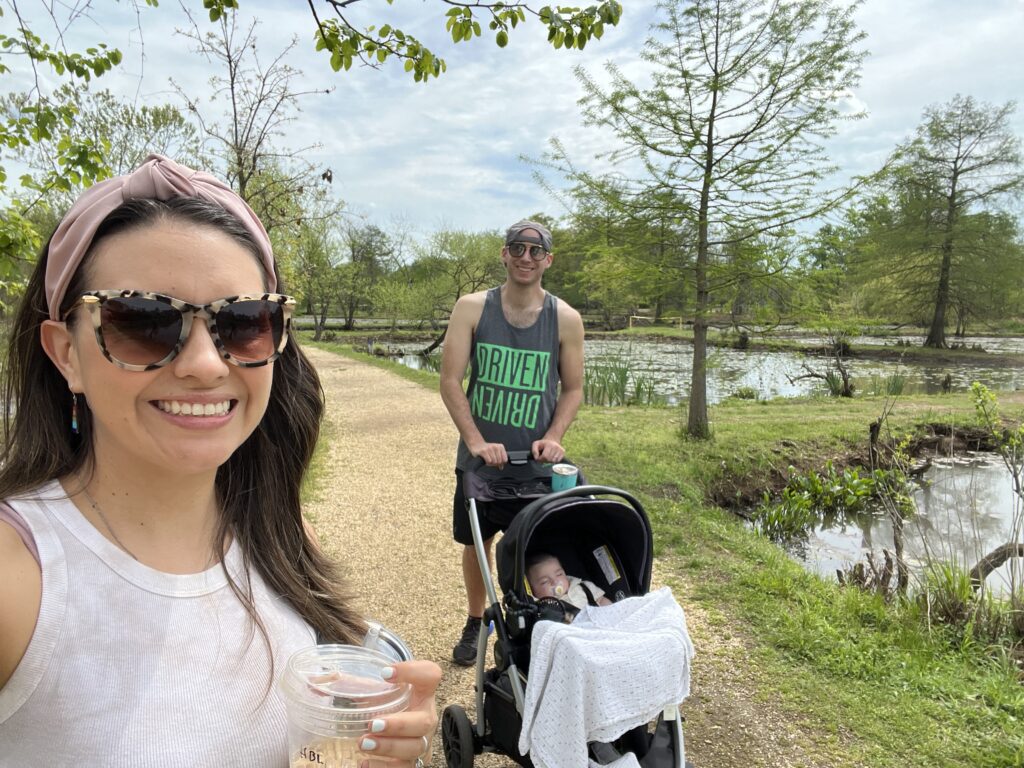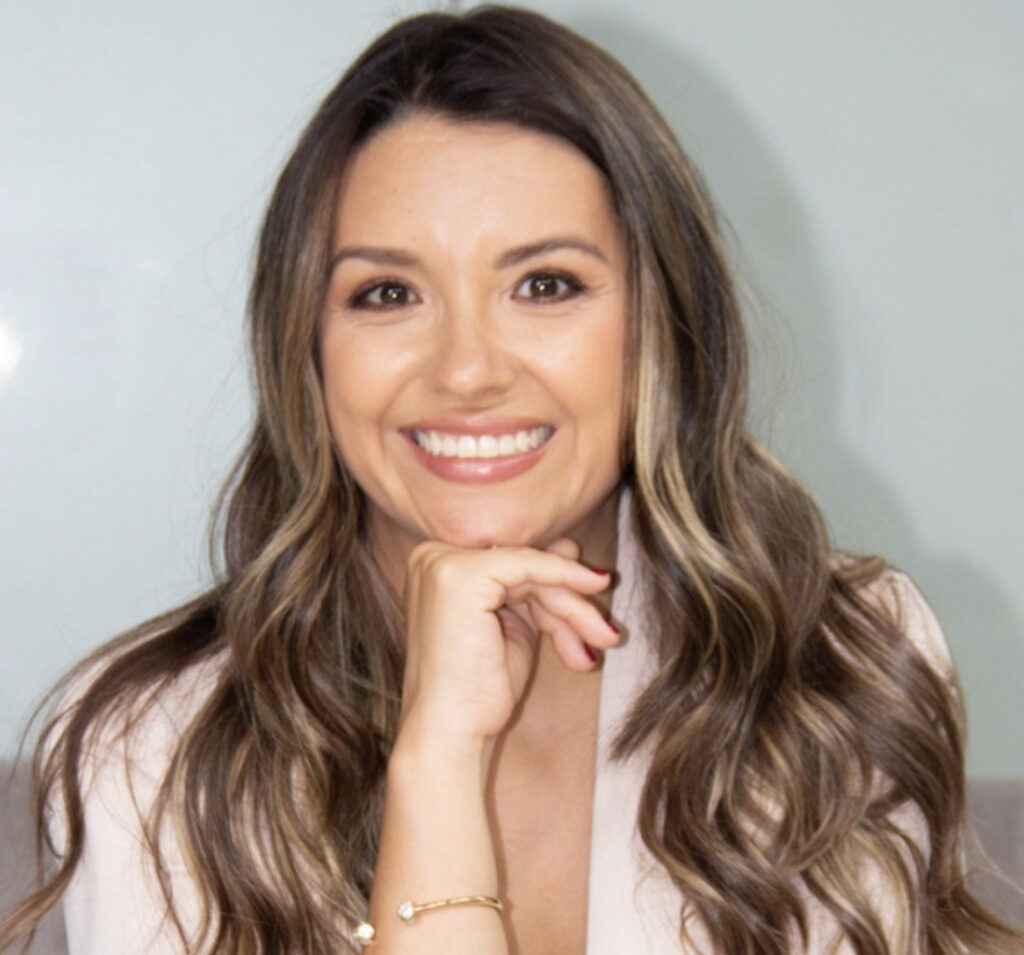In celebration of Latin American Heritage Month, I had the privilege of sitting down with Dr. Ana Maria Lopez Caldwell, a remarkable social scientist whose journey from Colombia in Latin America to the United States has been nothing short of inspiring. Dr. Ana Maria’s story is a testament to resilience, determination, and the power of authenticity in leadership. In this candid conversation, she shares her experiences as an immigrant, the challenges she faced, and the invaluable lessons she’s learned along the way. Join us as we delve into her journey, exploring how she has navigated her identity, embraced her Latin American heritage, and emerged as a strong advocate for inclusive leadership.
Introduction
Sahana: Hi, Dr. Ana Maria! I’m very excited to be doing this interview with you today finally. I know we’ve talked about this for a very long time. Do you want to start with just introducing yourself?
Dr. Ana Maria: I am a social scientist by training. I lived in New Orleans for eight years and called it home, and now live in Washington, DC. I just had a baby – I have a nine-month-old and his name is Noah. I’m originally from Colombia. I came to the States when I was 13, and it has been an amazing and challenging journey.
Journey as an Immigrant
Sahana: So you’re a mom, a leader, as well as a social scientist! Can you start by sharing your journey as an immigrant from when you came here as a 13-year-old? How has that been?
Dr. Ana Maria: I arrived in the United States at the age of 13 due to a combination of factors. Firstly, Colombia’s political and safety situation at the time was unstable, and my family faced personal circumstances threatening our safety. My older brother was already living in the United States, though he had a harrowing experience during the Twin Towers collapse while working at Merrill Lynch in the World Trade Center. Thankfully, he survived, but the trauma of that event weighed heavily on him.
Given these circumstances, my parents made the crucial decision to leave Colombia to protect our family. They believed it was vital for us to be together during these trying times, and it seemed like the right moment to leave the country.
Upon our arrival in the U.S., I held a visitor visa. However, after six months, it expired, and I became undocumented. This marked the beginning of what some refer to as the “1.5 generation,” where young immigrants like me find themselves undocumented before fully understanding the complexities of the legal system.
This undocumented status shaped my life profoundly, forcing me to become resourceful and navigate a society that often made me feel like an outsider. I embarked on a quest to fund my education, a path fraught with challenges. Undocumented students like me face significant barriers when it comes to accessing financial aid.
My strategy was unconventional yet determined. I began by enrolling in a community college after high school, discovering a funding loophole by participating in the student government. This opened the door to financial support. Subsequently, I applied to 14 colleges across the country, seeking private funding opportunities to further my education. Remarkably, I succeeded, enabling me to obtain a debt-free education in the United States.
Nevertheless, it wasn’t a straightforward journey. To thrive in an environment that constantly conveyed the message that I didn’t belong, I had to assimilate, sacrificing some aspects of my identity along the way. It was a survival tactic at the time, but over the years, I’ve worked to rediscover and embrace my authentic self with the support and insight that time and experience have provided. So, that’s a glimpse into my immigrant journey to the United States.

Acculturation in adolescence
Sahana: We’ve been working together for a year, but I had no idea about your incredible journey. Thanks so much for sharing it; it’s genuinely inspiring. As you were talking, it struck me that your challenges, though not unique, are incredibly complex. You can Google how to get financial aid, but there aren’t answers readily available for a young undocumented child navigating these systems or finding social support. It sounds like you had to figure out so much on your own. You mentioned that I now have the language to articulate these experiences as an adult. But thinking back to your 13 or 14-year-old self, I wonder how you navigated it without that language.
Dr. Ana Maria: To be honest, I didn’t have the tools back then. I was in survival mode, just plowing through and strategizing my next moves. It was all about accomplishing and overcoming adversity. I defied a lot of odds, considering my undocumented and immigrant status. I jumped through hoops and achieved things that, statistically, very few Latina immigrants do, like getting a PhD. That accomplishment felt like validation at the time, but it also troubled me. I was measuring my worth by societal standards that told me I didn’t belong and that I had to prove my value by achieving specific things. It took me years to realize that I didn’t have to do that; I belong here just as I am and don’t need to prove myself through achievements constantly. It wasn’t an easy lesson to learn.
Assimilating into American Culture
Sahana: Can you share your experience with assimilating into American culture and how it influenced your understanding of success in the U.S. compared to your Latin American heritage?
Dr. Ana Maria: While assimilating into American culture, I also assimilated the idea that success in the U.S. is closely linked to achievement. The need to perform to fit in became a significant focus for me. This is different and similar to the values I brought from Colombia and my Latin American heritage.
The idea of meritocracy is a common thread. I studied the socio-economic stratification system in Colombia for my dissertation and delved into questions about symbolic boundaries and how society determines who belongs. In Colombia, especially, there’s a strong emphasis on meritocracy, the belief that hard work allows you to lift yourself by your bootstraps and that everyone has equal opportunities. This similarity exists in both the U.S. and Colombia. However, my position in society in these two places was different.
Sahana: Can you elaborate on the differences in your experiences in Columbia vs. the United States
Dr. Ana Maria: I want to start by sharing that different individuals from Latinx communities will have completely different experiences due to their social and economic privileges. I came from a privileged background in Colombia, attending private schools and having numerous opportunities. In the United States, my undocumented status and accent presented challenges. This compelled me to unlearn biases about identity and exposed me to issues like racism. The core values are similar, but the differences lie in the privileges and disadvantages I faced in each country.

Privilege and Leadership
Sahana: You’ve mentioned holding certain privileges, such as having a Ph.D. and appearing white to some. How does your awareness of your privileges impact your leadership and consulting?
Dr. Ana Maria: That’s an excellent question, and I must say it has been a lifelong journey. In my view, diversity, equity, inclusion, and belonging are not domains where one can become an expert but areas where you continually practice and evolve. In my personal journey, I’ve dedicated a significant amount of time to developing this practice.
This involves becoming acutely aware of the intricate nuances within various identities and recognizing where I hold power and where I do not. It’s about striving for self-awareness and understanding that I can always learn and grow. When I work with individuals through coaching and consulting, I strongly emphasize this level of nuance.
Understanding these subtleties is critical for anyone in a leadership role. It allows us to engage in thoughtful conversations, discern underlying dynamics, and unpack the complexities of positionality and privilege within organizations. How power flows within an organization often plays a central role in shaping its dynamics, impacting how people feel heard and psychologically safe.
When I work with clients, I apply this nuanced understanding of identity to help them pinpoint the areas that need special attention. It’s about identifying how their organizational culture relates to various identities and ensuring that every aspect aligns with inclusivity and belonging.
Identity and Leadership style
Sahana: You’ve shared your experiences of overcoming challenges. How do your experiences as an immigrant woman and member of the Latino community impact your leadership style and strategies?
Dr. Ana Maria: My experiences have taught me resilience and the ability to navigate crises, an asset in leadership. In moments of uncertainty, I can bring a sense of calm and stillness, making space for thoughtful decision-making. This skill set has proved valuable when leading through challenges and transitions.
I encountered a significant roadblock due to my undocumented status. I wasn’t allowed to drive, which limited job opportunities. I couldn’t access financial aid, and I faced barriers to entry into many spaces, including higher education institutions. This forced me to develop a unique skill set focused on finding unreadily available opportunities. I had to understand intricacies and discover loopholes. I became adept at being strategic and diplomatic, all while facing internal struggles related to my identity.
As a result, I gained extensive experience in navigating crises. This skill set has proven invaluable. For instance, when I served as the executive director of an early college in New Orleans, we needed to implement substantial changes, particularly by introducing an associate degree program. The COVID-19 pandemic struck amid these changes, and we had to transition to remote learning. It was a time of crisis, and my toolbox of skills for managing such situations came in handy. We had to address numerous challenges, from students being unable to attend in person to parents in service industries struggling with job loss and limited access to the Internet.
A couple of years later, we faced Hurricane Ida and had to evacuate students, dispersing them across the southern United States. We needed to organize fundraising efforts and allocate funds to support students in various locations while developing an appropriate educational approach that fostered a supportive environment.

Accessing a Support system
Sahana: Who provided support and guidance during your journey, and how did it impact your leadership style?
Dr. Ana Maria: Absolutely, the answer is a resounding yes. It truly takes a community to support and empower someone. The type of support needed varies depending on the specific challenges and circumstances, as well as the reasons behind my journey, which is what I was describing.
But throughout it all, what made a significant difference were the individuals who believed in me. They saw me not just as an immigrant, not just as a woman with a unique story, not just as a Latin American, and certainly not as any stereotype that could be assigned to me. Instead, they recognized and valued me as a complete and complex human being.
I genuinely appreciate your question because it’s essential to acknowledge that while it’s easy to focus on the struggles, the feelings of not belonging, and the oppressive nature of undocumented status in our society, there’s another side to the story. There’s a whole community of people actively pushing against the systems that marginalize individuals and working tirelessly to open doors for those who are often pushed to the sidelines or intentionally excluded.
I’ve been fortunate to have a network of people who provided a variety of forms of support. Sometimes, it was in the form of practical assistance, such as connecting me with the right individuals or providing crucial information. Other times, it was the act of simply seeing me for who I am and believing in me. These allies engaged in conversations that others might have shied away from.
These remarkable advocates and allies have made a tremendous difference in my life. It’s also incredibly gratifying to be in a position where I can pay this forward, participating in spaces and coalitions with a more nuanced understanding of the challenges people face when they don’t feel like they belong due to their identity. With the tools I’ve gained, I can now work as an inclusive leadership consultant and coach, striving to advocate for others, just as I’ve been fortunate to have advocates supporting me along my journey.

Celebration of Hispanic Heritage
Sahana: How do you celebrate your Latin American and Colombian heritage in your personal and professional life today?
Dr. Ana Maria: Authenticity is the key. I’ve freed myself from the need for external approval. Celebrating my Latin American heritage means embracing the nuance and sometimes apparent contradictions in my identity. It’s about being unapologetically me, whether that’s enjoying Colombian cuisine during meetings, incorporating Spanish songs, or openly sharing my cultural roots. Living in this authenticity is a way of celebrating my heritage.

Advice for young immigrant members of the Latinx communities
Dr. Ana Maria: Investigate and question yourself to find out if you are liberated in the way you lead, work, and connect in the world. Clarify your motivations to move from external validation to an internal compass that assists you in contributing to the world. The second advice I would give is ‘Find your tribe!’ Create a community of support and grow that network. If you’re listening to this and if you need any support or assistance, please feel free to email me at [email protected]
Sahana: Thank you so much for today. Thank you for being part of my professional tribe and I truly cherish that!
Hyphens and Spaces
At Hyphens and Spaces, we’re committed to creating a community of people practicing new leadership styles and building diverse and inclusive organizations. You don’t have to do it alone. For more information, contact Hyphens and Spaces via our intake form here or email [email protected].




